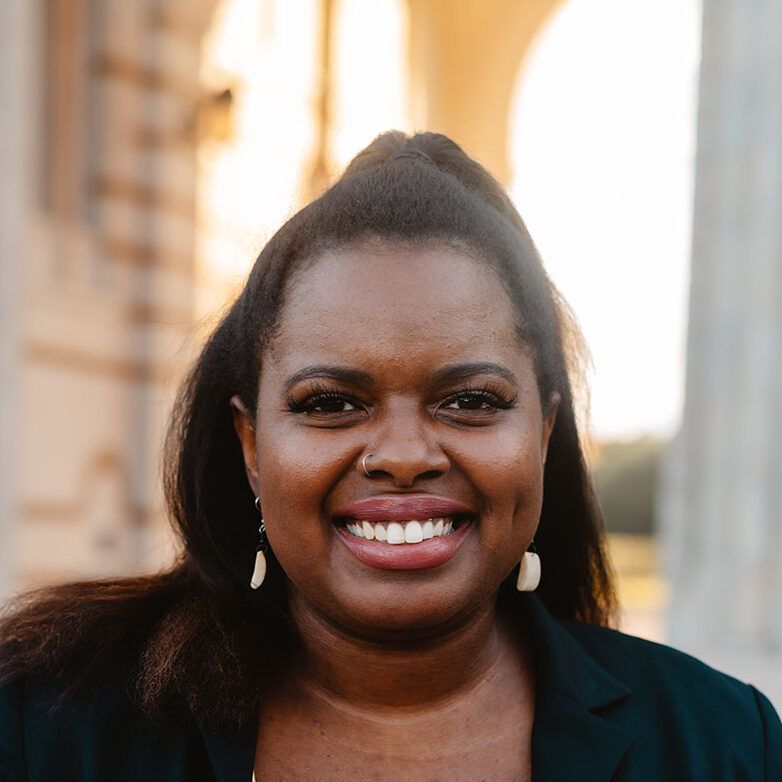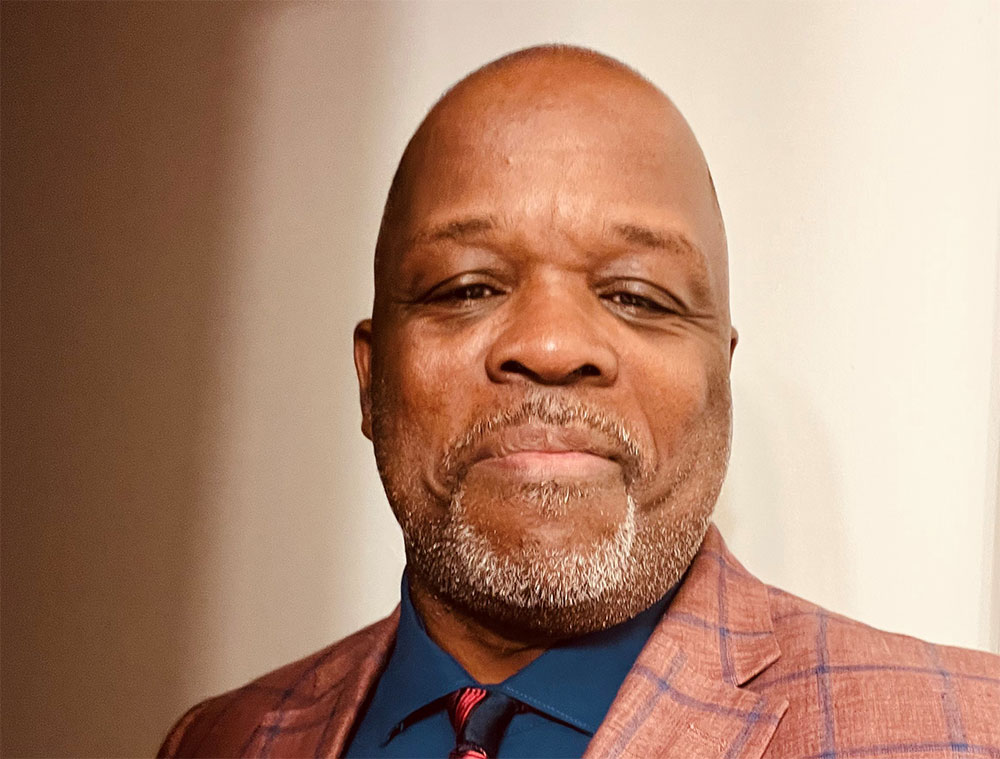For the People by the People:
Transforming National Trust Historic Sites through the Humanities
PROJECT SUMMARY
With the National Endowment for the Humanities (NEH) For the People by the People grant, the Wilson House asked four scholars from Historically Black Colleges and Universities to examine Wilson and his policies through the perspectives of African Americans and/or Indigenous Americans, groups particularly impacted by his policies.
Working remotely, and under the guidance of the NEH Coordinator, the NEH Facilitator and NEH interns collaboratively explored, examined, and discussed Wilson, his policies and their legacy through the Black and/or Indigenous gaze, utilizing an anti-racist framework of study. Taking a “think tank” approach, this group valued the active exchange of thought, argument and theory as they reexamined established perspectives, challenged accepted outcomes of Wilson’s politics, and identified new narratives through which this complex President may be better understood.
ACTIVITIES & AUDIENCE
Aligned with all four of the National Trust’s strategic priorities: Telling the Full American Story, Saving America’s Historic Sites, Building Stronger Communities, and Investing in Preservation’s Future, the grant activities and outcomes demonstrated how the humanities can support an inclusive understanding of our history and shared identity.
The program provided broadly applicable, humanities-based models for engaging scholars of color in the reexamination of the historic policies at the roots of contemporary racism, while also contributing to our greater understanding of the historical context of the Wilson era and the impacts his policies continue to have to this day.
Meet the NEH Grant Interns

Mariah Aliza Kaye Bender
Rice University
Mariah Aliza Kaye Bender is a first year doctoral student in the History Department at Rice University. They earned a BA in History and Education from Saint Louis University where their senior thesis analyzed the American repression of the Haitian economy in the period following its independence. Mariah earned an MA in Humanities from the University of Chicago where her research focused on the role of West Central African religious practices in Haitian Vodou. Mariah is most excited about learning more about how the Woodrow Wilson House can connect Black intelligentsia of the twentieth century, to the paradoxical Wilsonian discourse on the need for democracy in the international context, while at the same time further excluding African-American citizens from domestically participating in American democratic institutions.

Jasmine M. Ellis
Howard University
Jasmine M. Ellis is an award-winning audio journalist and archival researcher. She is pursuing her second master’s in history, concentrating on public history and African American women’s history at Howard University. Jasmine’s intellectual interests include Black women’s experiences and contributions during the Civil Rights Movement and the Black Power Movement.
Most recently, she was an associate producer at Slate Podcasts. In this role, Jasmine worked on several shows, including as an archival researcher for the award-winning podcast, Slow Burn: The L.A. Riots. She has a background in public radio, having reported and produced stories for Mississippi Public Broadcasting in Jackson and WHYY in Philadelphia. Jasmine also worked as the podcast specialist for The Atlanta Journal-Constitution. She produced the Access Atlanta: Things to do in Atlanta podcast and hosted a dispatch from Stacey Abrams’ election night watch party for the Politically Georgia podcast while at the publication.
Jasmine’s an alumna of Spelman College and Northwestern University’s Medill School of Journalism, a 2022 IWMF Lauren Brown Fellow, a 2021 IWMF Women to Watch Round-Up selectee, a 2020 IWMF Gwen Ifill Fellow, a 2019 AIR New Voices Scholar, and a 2016 White House Correspondents' Association scholarship recipient. In 2015, she was inducted into the Phi Beta Kappa Society.

Leigh Walters
University of Maryland
Leigh is a part-time Guide at the Woodrow Wilson House Museum. She works full-time as Congressional Relations Specialist for Congressional Research Services at the Library of Congress. She recently got accepted into Univ. of Maryland’s Library and Information Science graduate program, and already has a Master’s Degree in African American Studies from Morgan State University and a Bachelor’s Degree in History from Mercyhurst University. Leigh is passionate about local African American history and loves opportunities where she gets to learn and document it. For the NEH grant project, Leigh’s research focused on how African American activists in Washington, D.C. responded to President Wilson’s Administration segregating the federal government.

Sofia Yasin
Washington & Lee University
Sofia Yasin is a graduate of Washington and Lee University, where she received a Bachelor of Arts in Art History and Politics. Prior to the President Woodrow Wilson House, she worked as an art researcher and as a simultaneous interpreter. She is passionate about sustainable architecture and is also an amateur potter.
DELIVERABLES
Interns consolidated their research into identified topics and themes and were encouraged to proffer their own collective recommendations regarding the applicability and suitability of their work within the Wilson House interpretive program. The NEH intern program concluded with a virtual presentation to Wilson House staff to share research findings and appropriate recommendations.
The work of this scholarly think tank will be put forward by The President Wilson House via new interpretation, material, and programming.
Recommendations
Create Inclusive Spaces that include Wilson’s interactions with Black women activists, namely, Ida B. Wells.
Create Sample Narrative and Visual Exercises. Create a shared purpose, inclusive of visitors and their contributions to the WWH and reflective of an intersectional worldview while paying close attention to visitors’ personal relationships to objects.
Using photography and through letters from Ida B. Wells to the international community and Woodrow Wilson as primary sources, invite the viewer into understanding more about the legacy of Wilson and give space for a historically marginalized perspective: The Black Woman as an Internationalist. Consider Wilson as an Internationalist and the growing Black nationalist movement to draw connections to his political responses to domestic issues of racial violence along with his international policies.
Legacy of Place
Create dialogue on the Legacy of Place and align the Wilson House with other Wilson sites such as President Woodrow Wilson Presidential Library and Museum in Staunton, VA. The boyhood home in Augusta, GA and the Museum of the Reconstruction Era at the Woodrow Wilson Family Home in Columbia, SC.
Share Black Women’s (Before, during, and after Wilson’s Administration) Narratives
Frances Ellen Watkins Harper
The Formation of Black Women's Clubs
Ida B. Wells-Barnett
Black women confront President Wilson on the country's racism
Stacey Abrams
LaTosha Brown
Mary Scott
How President Wilson’s Peers Opposed Racial Segregation in the Federal Government
- Late 1800s Civil Service Reforms
- Governor Wilson’s 1912 “New Freedom” Campaign
- William Monroe Trotter Endorses Wilson
- Bishop Alexander Walters endorses Wilson
- By 1913, Wilson segregates the Bureau of Engraving and Printing, the Treasury Department, the Post Office Department and issues an Executive Order that required photographs to accompany federal job applicants
- Belle La Follettee criticizes Wilson’s Administration
- Dr. Lucy Ella Moten writes to the President
- Francis Grimke Leads Protests


